
Does Hyaluronic Acid Cause Acne or Help Your Skin?
Hyaluronic acid (HA) is a well-known skincare ingredient known for its hydrating properties and for plumping the skin. It is frequently promoted as the answer to dry, dull skin and is found in various products, from serums to moisturisers. But this comes with a frequently asked question: Can hyaluronic acid cause acne? Let’s get to the bottom of whether this hydrating ingredient is friend or foe in the quest to keep your skin clear.
Can hyaluronic acid cause acne?
Hyaluronic acid is widely recognised as a non-comedogenic ingredient, meaning it doesn’t clog pores or directly cause acne. But like any skincare product, how it interacts with your skin can depend on the formulation and how it’s used. Here’s why hyaluronic acid can be both beneficial and potentially problematic for acne-prone skin
Hyaluronic acid itself is non-comedogenic
Does hyaluronic acid cause acne? The nature of hyaluronic acid itself doesn’t pose a risk for acne. Its lightweight, water-loving molecules penetrate the skin and help attract moisture without clogging pores. So, in its pure form, hyaluronic acid should not trigger breakouts. You can even use Hyaluronic Acid for Oily Skin
Formulation matters
While hyaluronic acid on its own is safe, the formulation of the product it’s in is crucial. Some HA products may contain additional ingredients that can clog pores, such as silicones, heavy oils, or occlusives (ingredients that trap moisture). These added ingredients can create a barrier on the skin that could lead to breakouts, particularly in individuals with oily or acne-prone skin.
Over-moisturisation
Hyaluronic acid is one of the Best Moisturising Ingredients. But excess hydration can sometimes lead to fungal acne, a different type of acne caused by an overgrowth of yeast on the skin. Those with oily or combination skin may be particularly susceptible to fungal acne when they use too much hyaluronic acid, which attracts moisture to the skin’s surface, creating a damp environment that can feed the yeast.
Reaction to Other Ingredients
Hyaluronic acid is often combined with other ingredients in serums and creams, such as preservatives, fragrances, or actives like vitamin C and retinol. These added ingredients can sometimes cause sensitivity or irritation, leading to breakouts. So, while hyaluronic acid may not be the direct cause of acne, the additional ingredients in the formula could trigger a reaction on sensitive or acne-prone skin.
Using HA on dirty or damp skin
How you apply hyaluronic acid is just as important as the product itself. If HA is applied to dirty or damp skin without sealing it in with a moisturiser, it can draw in dirt, bacteria, and impurities from the environment, which could lead to breakouts. Always ensure your skin is clean before applying any HA serum, and follow it with a hydrating moisturiser to lock in the hydration.
Who should be cautious with hyaluronic acid?
Hyaluronic acid is generally safe for most skin types, but there are some individuals who should exercise caution or adjust their use. If you fall into any of the categories below, it’s a good idea to be mindful of how and when you use HA products.
People with fungal acne
Fungal acne, or Malassezia folliculitis, can worsen with certain hyaluronic acid formulations. The reason for this is that HA can provide a moist environment, which may exacerbate the growth of yeast on the skin. People who suffer from fungal acne should opt for a lightweight, non-comedogenic HA serum. You should also consult a dermatologist to understand the Difference Between Purging and Breakouts from hyaluronic acid.
Acne-prone skin using heavy HA products
If you have acne-prone skin, heavy creams or occlusive HA products that contain oils or thick moisturising agents may contribute to breakouts. Opt for water-based or gel formulations, as these are typically lighter and less likely to clog pores. If you’re unsure, patch-testing new products is always a good idea
Those sensitive to skincare preservatives
Some hyaluronic acid serums contain preservatives like alcohols or parabens to extend shelf life, which can irritate sensitive or acne-prone skin. If you’re sensitive to certain preservatives, look for HA products that are free from alcohols and parabens. Always read the ingredient list to ensure compatibility with your skin
How to use hyaluronic acid without causing acne
To harness the benefits of hyaluronic acid without triggering breakouts, here are some tips for using it properly
Choose a lightweight, non-comedogenic formula
Look for water-based or gel formulations like the Waterlight Gel MoisturiserThese products are less likely to clog pores and more suitable for acne-prone skin. Always check the ingredient list to ensure it doesn’t contain any pore-clogging additives, like heavy oils or silicones.
Layer it properly
The Benefits of Hyaluronic Acid can be best experienced when applied to damp skin. This allows it to attract moisture and effectively hydrate the skin. After applying HA, follow up with a light, oil-free moisturiser to lock in the hydration. Avoid skipping the moisturiser, as this can leave the skin feeling dry and prone to irritation.
Avoid mixing with pore-clogging ingredients
Be careful about combining hyaluronic acid with products that can clog your pores. Heavy oils, waxes, or some silicones can prevent HA from hydrating skin, forming a barrier that makes it impossible for impurities to escape. Be sure to always read product labels and never use HA in combination with comedogenic ingredients
Use in moderation
When used in excess, hyaluronic acid can compromise the skin barrier, leading to possible dehydration and breakouts. Consider putting it on once or twice a day to prevent adverse reactions.
Quick tips for healing acne caused by hyaluronic acid
If you’ve used hyaluronic acid and noticed a breakout, there are steps you can take to heal your skin.
· Try using the Overnight Acne Spot Corrector. This fast-acting solution can help you get rid of four types of active acne overnight.
· Use the Clearing & Calming Acne Face Wash to soothe your skin. It helps get rid of active acne and also prevents future breakouts
Conclusion
Hyaluronic acid is a wonderful ingredient for maintaining hydrated, plump skin, but like anything else you put on your skin, it’s all about the formula and how you use it. With the right product, you can experience the magic of HA without the fear of breakouts.
FAQs:
Can hyaluronic acid make acne worse?
Hyaluronic acid itself is non-comedogenic, but if used with pore-clogging ingredients or over-applied, it may contribute to breakouts in some individuals
Is hyaluronic acid safe for oily and acne-prone skin?
Yes, hyaluronic acid is safe for oily and acne-prone skin as it hydrates without clogging pores. Choose lightweight, water-based formulas for best results
Should I stop using hyaluronic acid if I get breakouts?
If you experience breakouts, assess whether the product contains other pore-clogging ingredients or if you're using it in moderation. Try using a non-comedogenic formula in moderation to see if you are still getting breakouts. If breakouts persist, you might be allergic to hyaluronic acid
Can I use hyaluronic acid if I have fungal acne?
Fungal acne sufferers should be cautious, as some HA formulations may exacerbate the condition. Opt for lightweight, non-comedogenic HA products and consult a dermatologist.

























































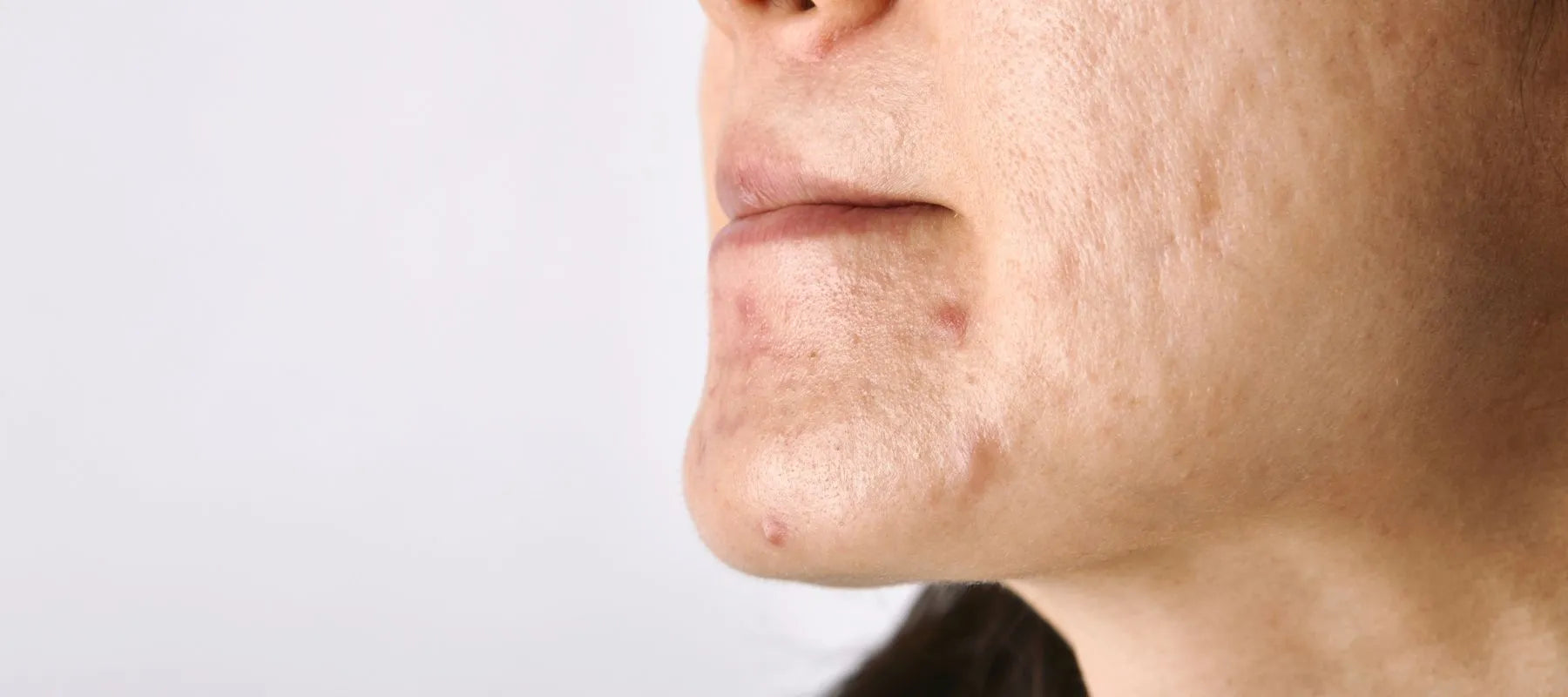

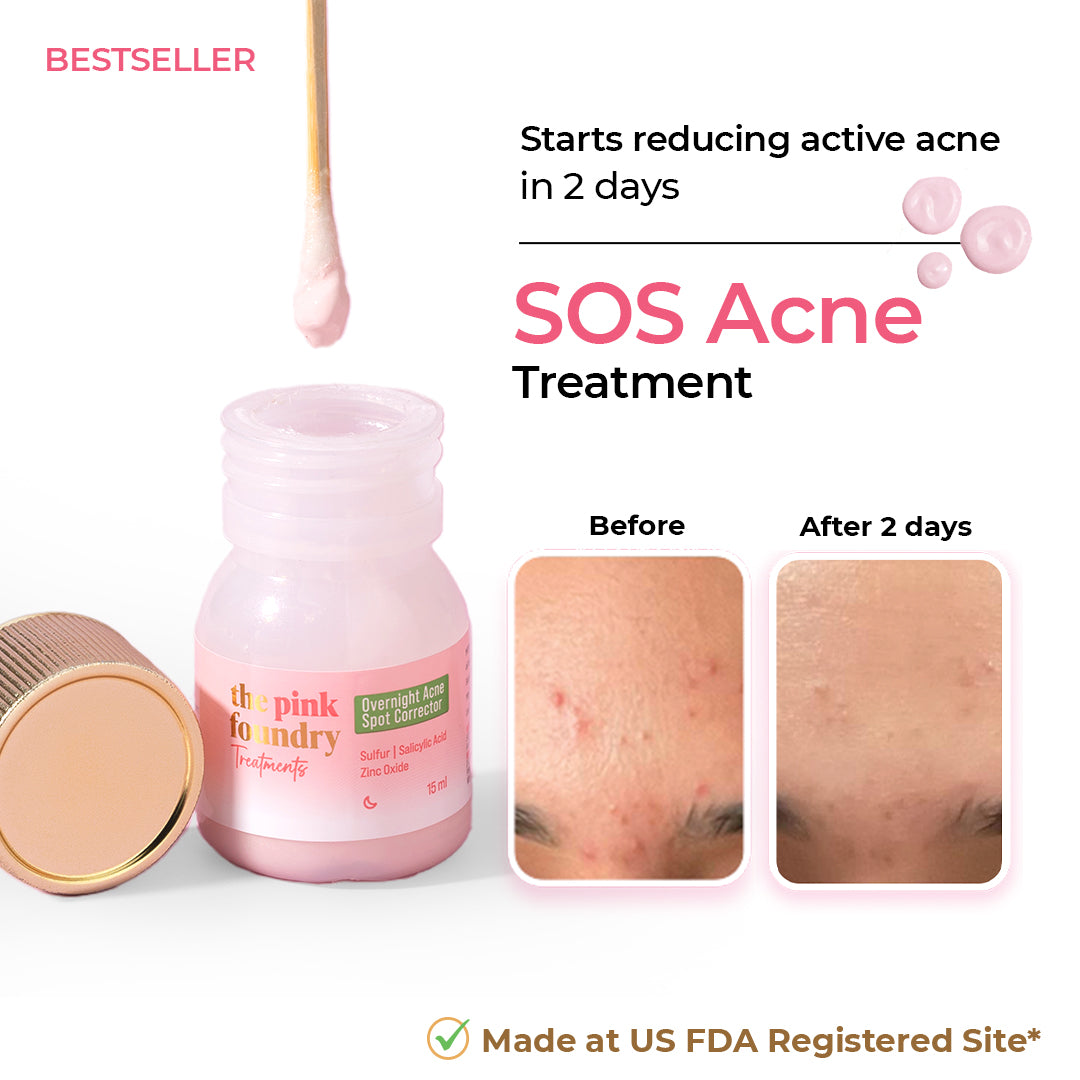
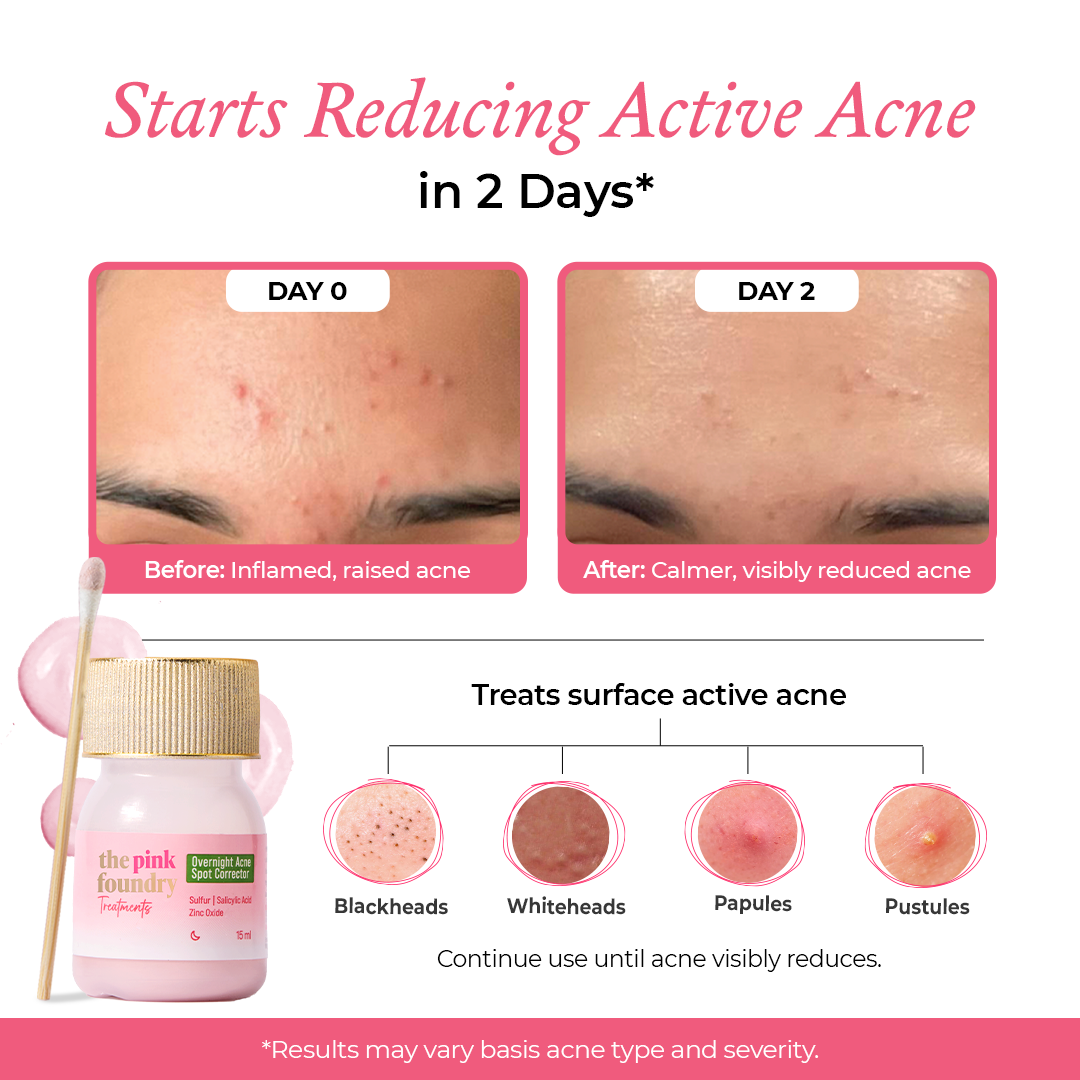


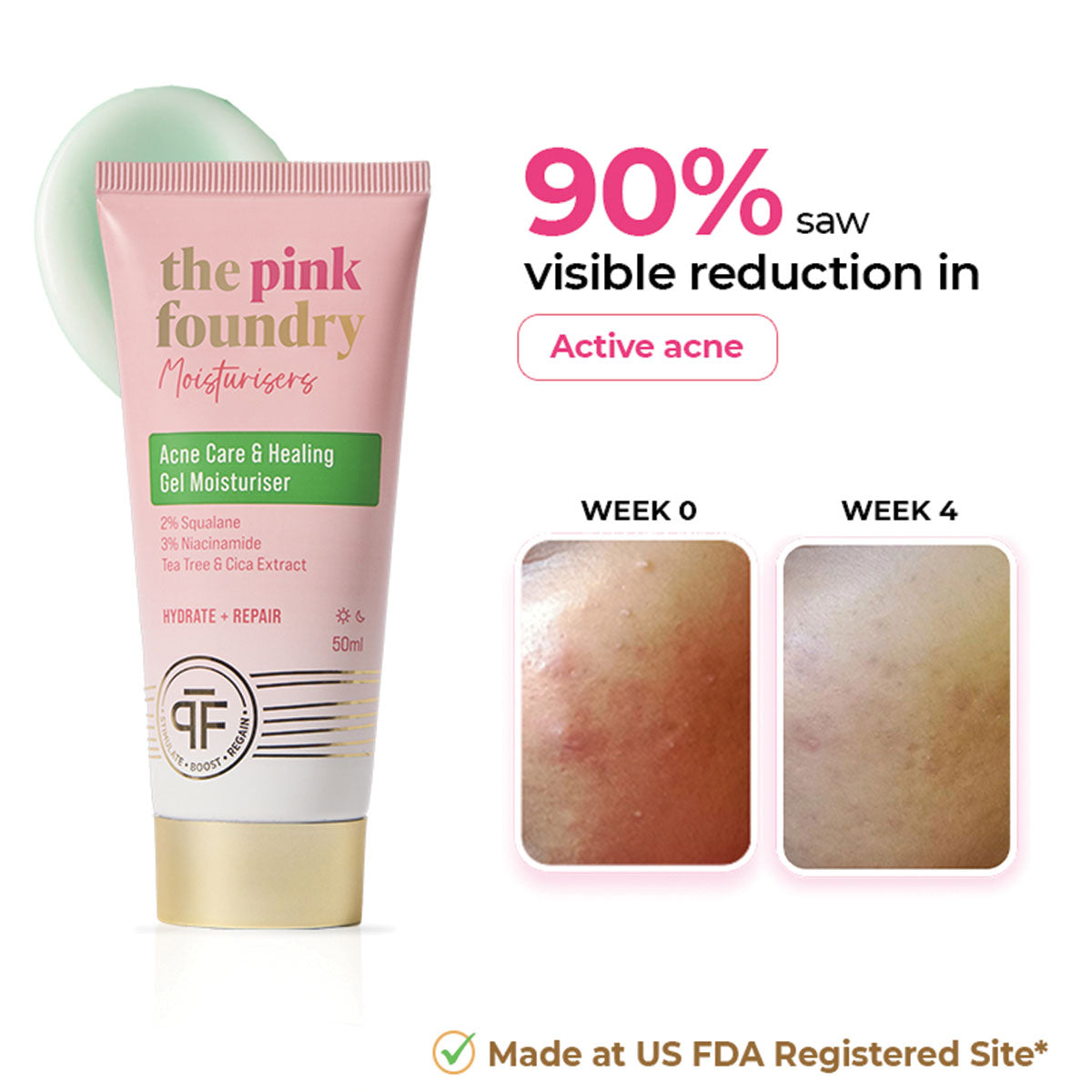
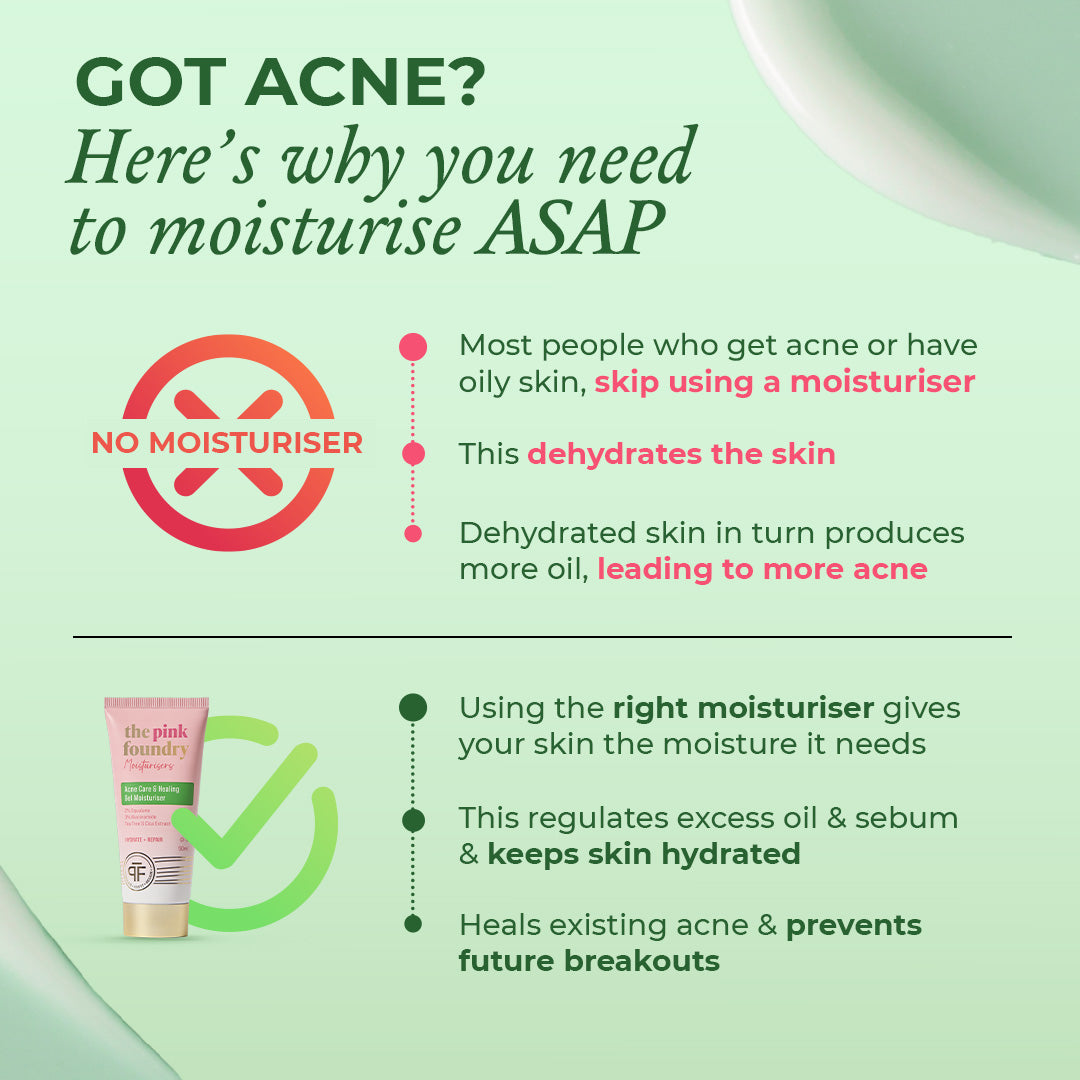










Leave a comment
This site is protected by hCaptcha and the hCaptcha Privacy Policy and Terms of Service apply.